Photography Emma Cross
Sign up to our mailing list for the best stories delivered to your inbox.
And there's nowhere else she'd rather be.
Photography Emma Cross Words Jayne Cuddihy
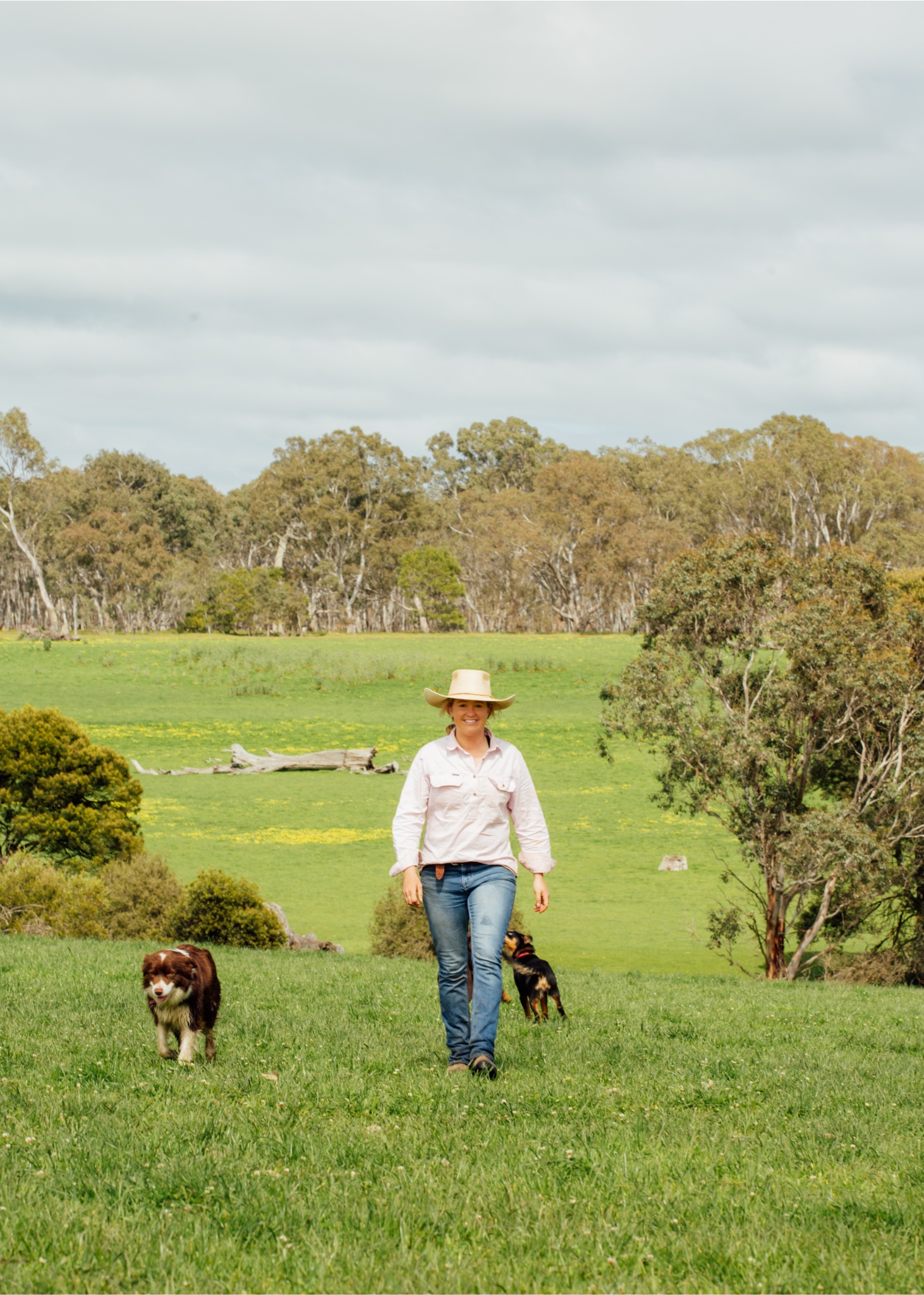
Photography Emma Cross
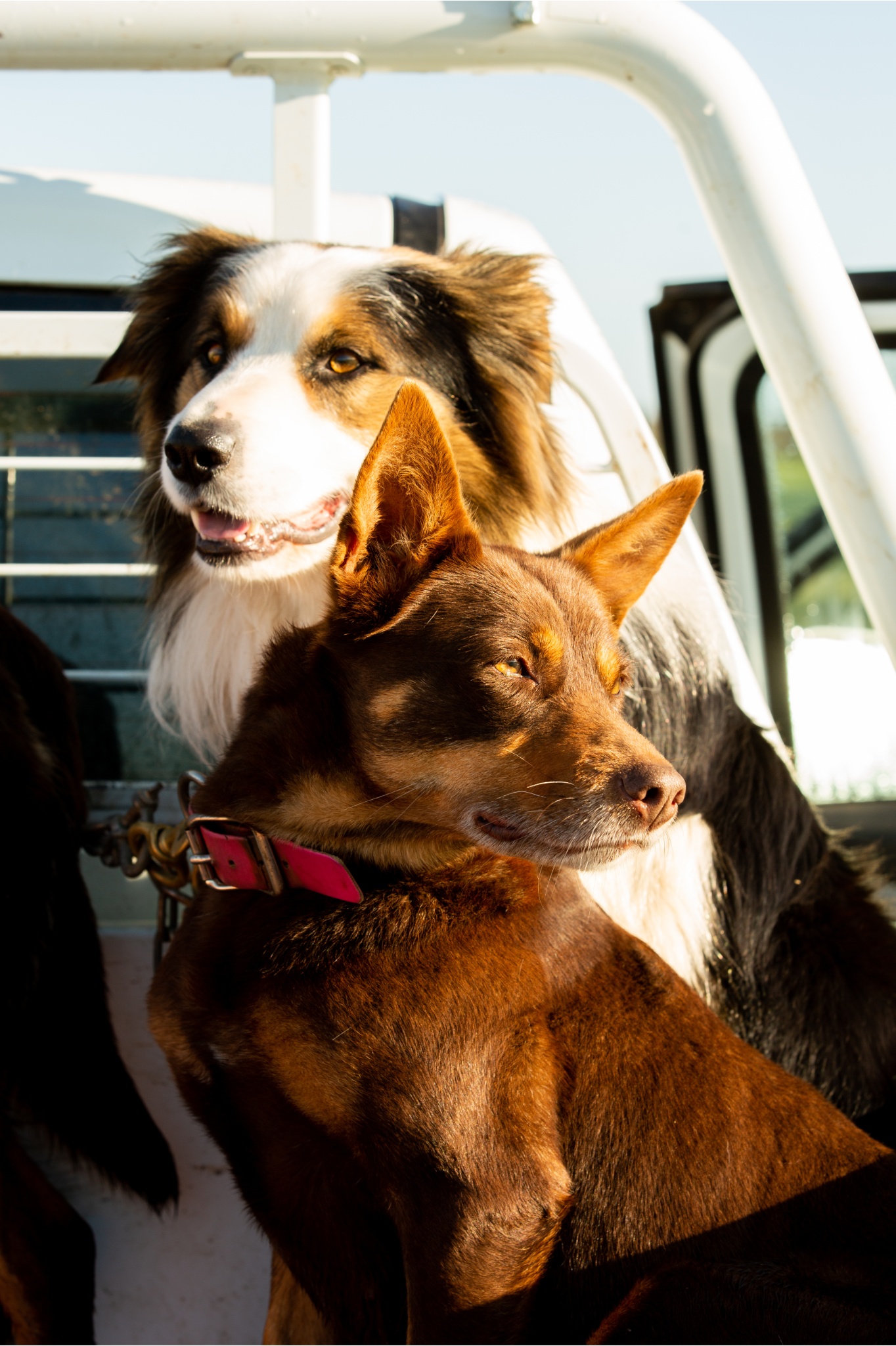
Photography Emma Cross
Victoria’s Grampian mountains form an arresting vista over Lowanna, a property around 70 kilometres from Hamilton in Victoria’s Dundas tablelands. But Lucy Fenton isn’t distracted by this spectacular beauty. Her view is firmly on the paddock, where the family’s Merino flock grazes among the native red gums dotted across the 790 hectares.
The 27-year-old runs Lowanna in conjunction with her parents, who are based at Vasey Farm, just under an hour away. Bronnie and Paddy Fenton both come from rural families with a work ethic and a passion for environmentally sustainable sheep production that seems to have been honed through generations.
The couple married in 1991 and moved to Vasey Farm, Paddy’s mother’s property, the same year. Like Lowanna, Vasey is also on the Dundas tablelands, 60 kilometres from town.
Three decades later, the question of who is leading the charge isn’t up for negotiation. “Mum is in charge! They are a great partnership, but Mum runs the livestock side of things, the planning and the financial side of the business,” explains Lucy. “Dad has a really heavy workload too, but tends to be called in to help Mum and me at the drop of a hat.”
Like the generations before her, the only career Lucy was ever going to entertain was managing sheep. After school she worked on several different properties, before heading to Marcus Oldham College in Geelong to study agribusiness when she was 22 years old. “I can’t remember a time that I wasn’t just mad about the farm. Ever since I was a little kid, I’ve had ‘sheep on the brain’ as people would say,” says Lucy.
She recalls jumping off the school bus and making a beeline for the woolshed, still in her uniform. “If we were shearing, I’d be straight on the broom in my dress and just loving it.”
In 2019, Lucy returned to Vasey for a six-month hiatus to plan for her next adventure. But fate had other plans and, thanks to her natural affinity with managing livestock and a couple of family health issues, Lucy’s bags were permanently unpacked.
She’s quick to point out that most of her extended family work in agriculture, and though every generation is rife with
strong female role models, Lucy is adamant that gender just doesn’t come into it. “I’m just a person in agriculture who loves what I do. I’m just doing it because I’m me, not because I feel a need to prove myself. We’re a team, a family.”
This attitude means the Fentons have had the liberating experience of playing to each family member’s strengths. When tough calls are made, they are made as a team. “Around 2006 when the drought was bad, Dad bought an excavator to work off-farm for a couple of years so we could keep all our sheep. He used to say ‘I’ll keep the B-doubles of grain coming in the gate’,” says Lucy.
“That’s probably the only reason we were able to get ahead quite quickly once the drought broke.”
The Fentons run around 21,000 sheep across an aggregation of their own properties and some leased country. The flock is obviously Lucy’s passion, and it doesn’t take long for the conversation on genetics to get technical and specific: Lucy rattling off information like an infatuated parent.
“We’ve spent four years changing our genetics and focusing solely on multipurpose Merino bloodlines, with the support from our Soft Rolling Skin Merinos. It’s been a welcome and smooth process so far,” she says.
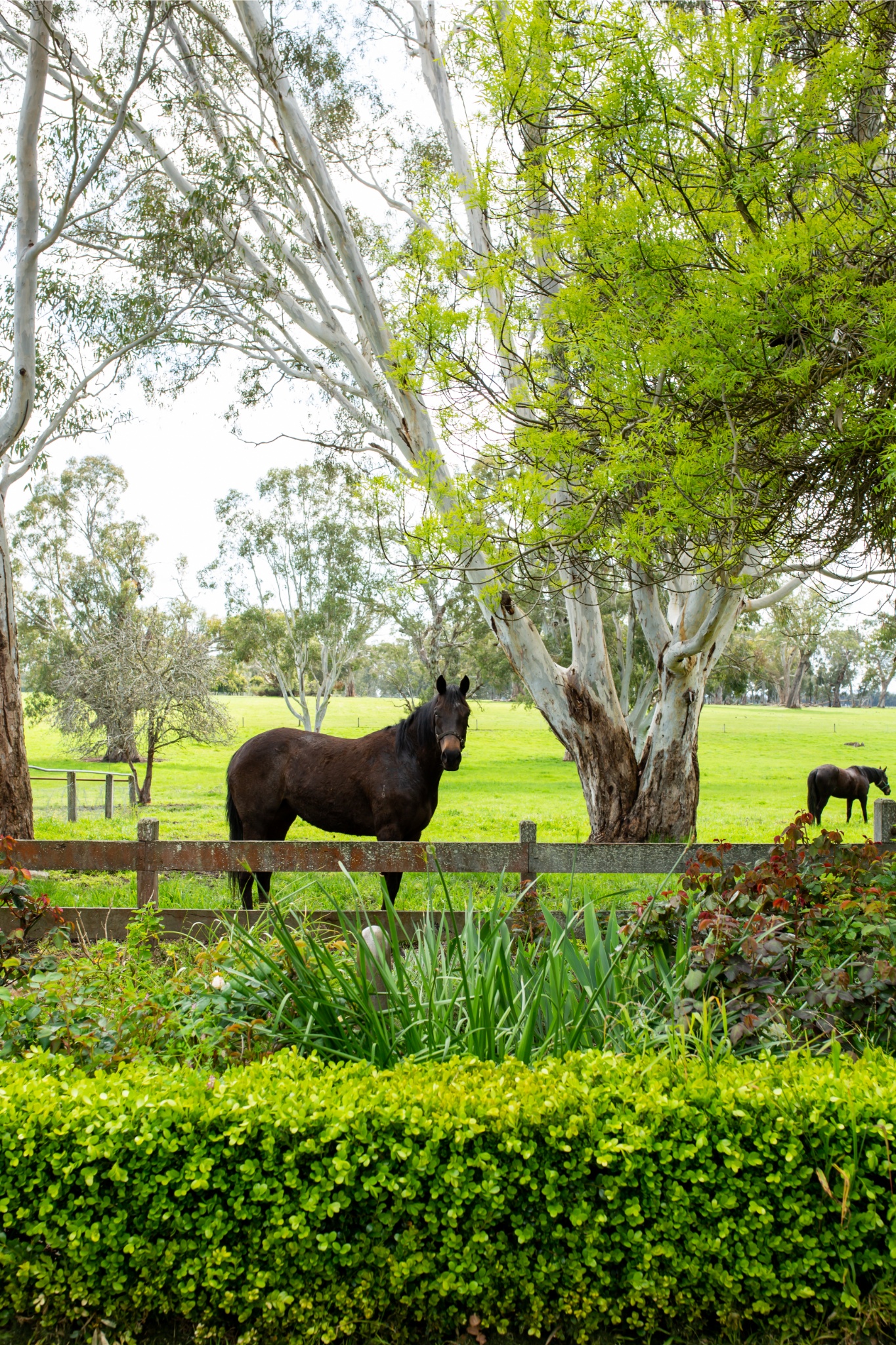
Photography Emma Cross
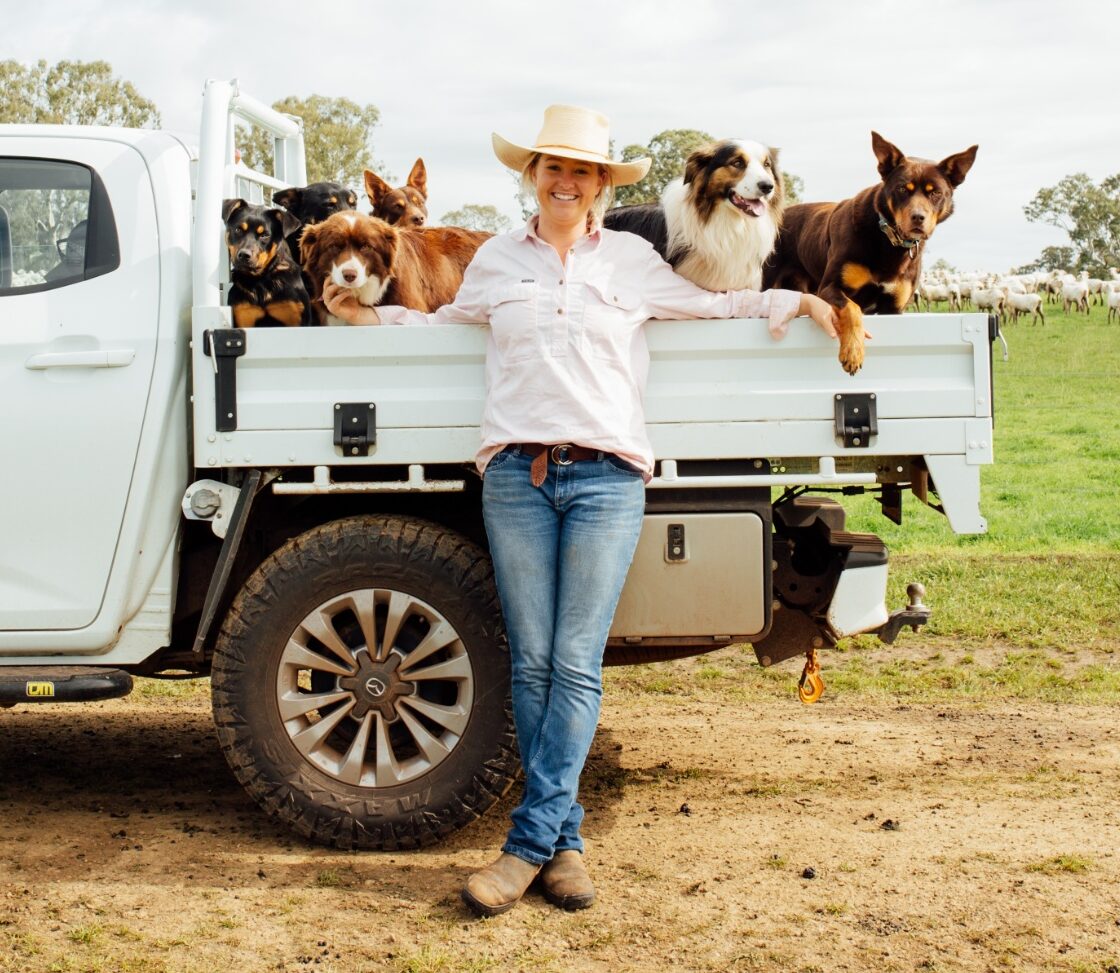
Photography Emma Cross
“We’ve also decreased the shearing intervals and stopped mulesing, which took time, but with the help of the ASBVs [Australian Sheep Breeding Values] available from the rams we buy, it took a lot of the worry out of it.”
Paddy’s parents, John and Cicely, enjoyed wonderful success with environmental renovation on their property Lanark at Branxholme, Victoria, and the new generation remains committed to planting trees to imp-rove the landscape and health of their soil and ecosystems, while decreasing paddock sizes and renovating pastures.
Their granddaughter is now firmly focused on how her generation will continue the traditions of their ancestors, while making impressions of their own. She stands at the critical juncture where environmental sustainability meets profitable
modern farming. Her younger brother Jock has also returned to the business and the pair are reaping the benefits of very supportive parents.
“I have a dream existence. I grew up doing all the amazing things that my grandmother and her sisters grew up doing, on the same property,” says Lucy.
“I can’t wait for the next generation to do it all over again. In the meantime, I love sharing it with my friends: cooking up feasts from our own produce and lighting bonfires to indulge in golden evenings among the red gums and mountains.”
It seems Lucy has discovered the secret of every Australian farmer’s happiness: there is nowhere else she’d rather be.
Subscribe to Graziher and never miss an issue of your favourite magazine! Already a subscriber? You can gift a subscription to someone special in your life.
To hear more extraordinary stories about women living in rural and regional Australia, listen to our podcast Life on the Land on Apple Podcasts, Spotify and all major podcast platforms.
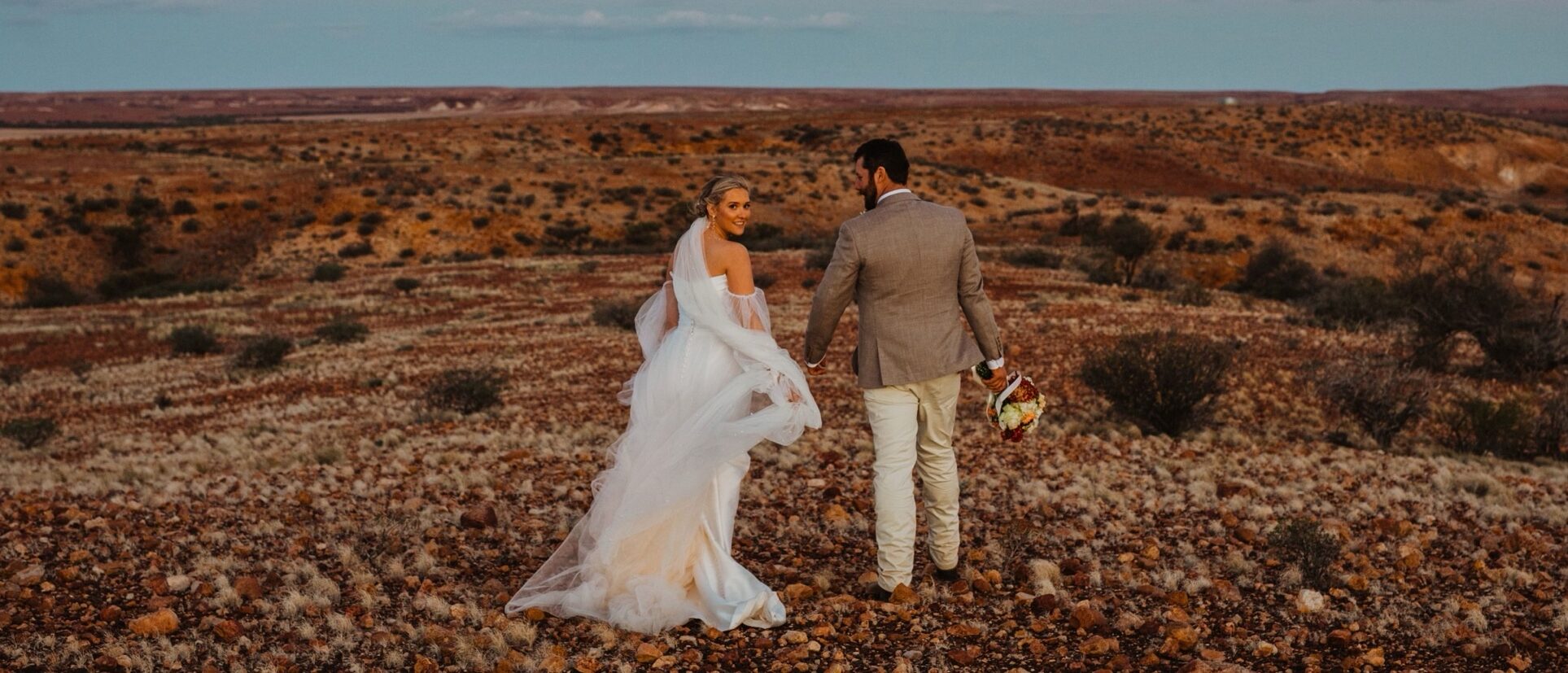
Some vendors drove 12 hours to be at Sarah Knight and William Clarke’s big day.

She tells Claire Austin about the road to recovery for her Adelaide Hills garden.